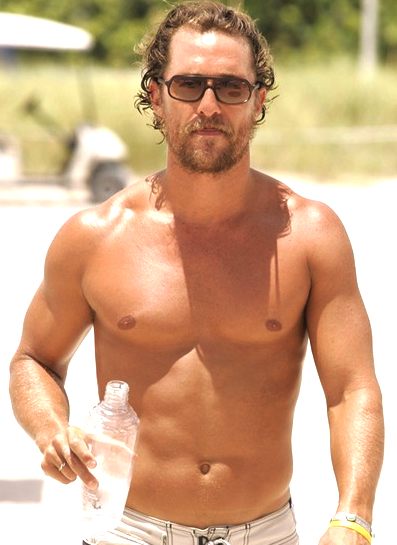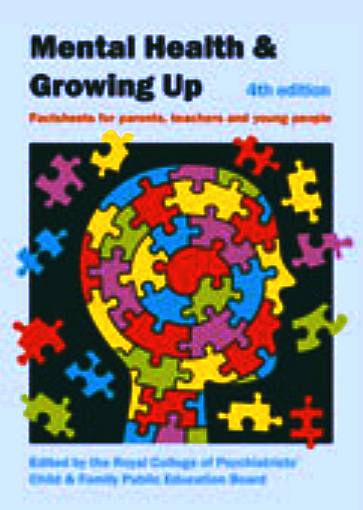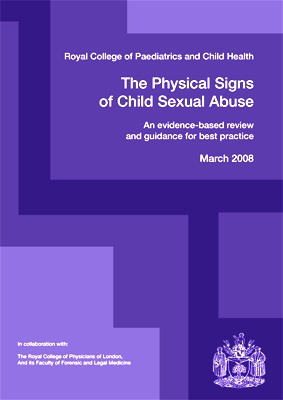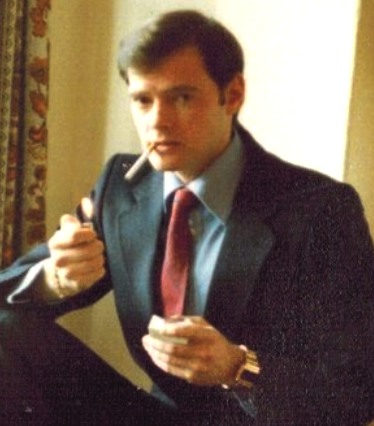|
SCHOOLGIRL FANTASIES
|
||||||||||||||||||||||||||||||||||||||||||||||
|
HOME | BIOLOGY | FILMS | GEOGRAPHY | HISTORY | INDEX | INVESTORS | MUSIC | NEWS | SOLAR BOATS | SPORT |
||||||||||||||||||||||||||||||||||||||||||||||
Dictionary definitions: A fantasy (phantasy) is a place existing solely in the imagination (but often mistaken for reality) - or the imagination unrestricted by reality; "a schoolgirl fantasy"
FALSE ABUSE ACCUSATION SYNDROME
The False Memory Syndrome Foundation (FMSF) was formed in 1992 by Pamela and Peter Freyd, with the support and encouragement of therapists Hollida Wakefield and Ralph Underwager. The Freyds were rapidly joined by a group of professionals with expertise in the area of suggestion, and by thousands of parents who had been accused of child abuse by adult children who had no memory of abuse before entering some form of therapy.
The founders of the FMS Foundation were concerned that the adult offsprings' devastating new beliefs about their childhoods developed because of therapy experiences that almost always included one of the following techniques used to "excavate hidden memories": hypnosis, relaxation exercises, guided imagery, drug-mediated interviews, body memories, literal dream interpretation, and journaling. It is the position of the FMSF that there is no scientific evidence that the use of consciousness-altering techniques such as these can reveal or accurately elaborate factual information about any past experiences, including sexual abuse.
According to the FMS Foundation, "The controversy is not about whether children are abused. Child abuse is a serious social problem that requires our attention. Neither is the controversy about whether people may not remember past abuse. There are many reasons why people may not remember something: childhood amnesia, physical trauma, drugs or the natural decay of stored information. The controversy is about the accuracy of claims of recovered "repressed" memories of abuse. The consequences profoundly affect the law, the way therapy is practiced, families and people's lives."
Members of the FMS Foundation Scientific Advisory Board now include a number of members of the National Academy of Sciences and Institute of Medicine: Aaron T. Beck, M.D., Rochel Gelman, Ph.D., Leila Gleitman, Ph.D., Ernest Hilgard, Ph.D., Philip S. Holzman, Ph.D., Elizabeth Loftus, Ph.D., Paul McHugh, M.D., and Ulric Neisser, Ph.D. The Scientific Advisory Board includes both clinicians and researchers. The FMS Foundation has no affiliations with any other organizations. It is funded by contributions and has no ties to any commercial ventures.
The Random House Compact Unabridged Dictionary, 2nd Edition, 1996, Addenda defines "false memory syndrome" as "a psychological condition in which a person believes that he or she remembers events that have not actually occurred."
Controversy
Anti-FMSF websites assert that although cases of false memories exist, the term "syndrome" is misleading and that the FMSF is not a reliable independent source of information about FMS.
Writing under the pseudonym "Jane Doe", one year before she established the False Memory Syndrome Foundation, Pamela Freyd published a first-person account of her daughter's accusations of sexual misconduct against her husband, Peter Freyd. The publishers of this journal were Hollida Wakefield and Ralph Underwager.
The Freyds' daughter is Jennifer Freyd, Ph.D., Professor of Psychology, University of Oregon. She writes,
Hollida Wakefield and Ralph Underwager were appointed to the FMS Foundation Scientific Advisory Board when it was first created. In an interview with the editor-in-chief of Paidika: : The Journal of Pædophilia, Wakefield is quoted as follows:
In the same interview, Underwager said this:
In the storm of controversy that followed this interview, Hollida Wakefield and Ralph Underwager resigned from the FMS Foundation Scientific Advisory Board. Pamela Freyd remains as Executive Director. Peter Freyd is on public record admitting that he was an alcoholic, that he himself was sexually abused as a child, and that he may have said and done things to his daughter that were inappropriate. He emphatically denies sexually abusing her.
The controversy over the motivations and family histories of the founders of the FMS Foundation occurred at the same time as a related but more substantive controversy within the academic and therapeutic communities over the existence of repressed or false memories.
Notes
A CAREER IN MODELING - All of the above are well above average in terms of tone and looks - and bound to get girls drooling after them. In model terms these guys are cooking. So what are the the standards in the fashion (modeling) industry?
The ideal height for a male model is in between 5′ 11″ and 6′
2.″ Typically models weigh around 175 pounds. Male modeling can
start from the age of 18-25 and go on to 40, which is a
longer career than their female counterparts. Mature male models
are also in demand - if they keep in shape.
False memory
A false memory is a memory of an event that did not happen or is a distortion of an event that did occur as determined by externally corroborated facts.
Background
It is common experience that human memory may be unreliable to some degree, whether by failing to remember at all or by remembering incorrectly.
Our sense of identity, of who we are and what we have done, is tied to our memories, and it can be disturbing to have those challenged. Amnesia, Alzheimer's disease, and post-traumatic stress disorder (also known as “shell-shock”) provide examples of dramatic loss of memory, with devastating effects on the sufferer and those around them.
Memory is a complicated process, only partly understood; but research suggests that the qualities of a memory do not in and of themselves provide a reliable way to determine accuracy. For example, a vivid and detailed memory may be mistaken, and a vague memory, correct. Likewise, continuity of memory is no guarantee of truth, and disruption of memory is no guarantee of falsity. Finally, memory is believed to be a reconstructed phenomenon, and so it can often be strongly influenced by expectation (one's own or other people's), emotions, the implied beliefs of others, inappropriate interpretation, or desired outcome.
Discussion
If a person remembers an event that lacks another witness or corroborative physical evidence, the validity of the memory may be questioned—but not dismissed. It might be said that absence of evidence is not evidence of absence, but validation has the highest priority. For instance, one might say that there are scores of secret elephants with wings; as difficult as it may be to disprove such a statement outright, the statement cannot be validated until many such elephants are actually found.
Complications arise when a memory involves trauma inflicted by another. If it is in a reputedly involved third party's interest to deny an incriminating memory, the memory cannot be dismissed merely on the strength of such a denial. Likewise, the memory alone does not warrant an accusation of the third party - hence need for external corroborative evidence.
The origin of false memories is controversial. Hypnosis can be used to form false memories because this technique can lead to fantasizing and can increase the subjective certainty of fantasy. Research suggests that at least some false memories are formed through rehearsal, or repetition, of an event that has been confirmed as fantastic: after repeatedly thinking about and visualizing an event, a person may begin to “remember” it as if it had actually occurred. Upon questioning, such a person might confidently recall the event when in fact it is merely previous visualizations that make it seem familiar. Rehearsal is the strongest mechanism of moving short-term memory into long-term memory. Naturally, the rehearsal of incorrect information leads to the formation of an incorrect long-term memory. This applies to both implanted and real memories. For example, many people have experienced the phenomenon of learning that a childhood memory actually happened to a sibling.
Research suggests that memory involves reconstruction, not just recall. For example, a child remembers daddy standing at the table with an angry expression and wielding a big sharp knife, and shouting at mommy who is screaming and looks scared. The memory may be partly accurate, but in fact the child is half remembering fragments of a Thanksgiving party: daddy was carving the turkey and singing loudly, and mommy's expression is because she is shouting at the dog to lie down. The child may later simply have a fragment of memory that they are guided to interpret and remember "correctly" as "daddy was violent, mommy was always terrified of him".
Many proponents of recovered memories emphasize the importance of distinguishing between ordinary and traumatic memory. Studies show that memories can be implanted, but we lack studies on implanted traumatic memories and their related effects—such as post-traumatic stress disorder and dissociative identity disorder—because such studies would be unethical.
False memory syndrome
False memory syndrome (FMS) is the term for the hypothesis describing a state of mind wherein sufferers have a high number of highly vivid but false memories, often of abusive events during their childhood. This condition has been studied, and sufferers have confessed to “entirely made up stories.” However, the DSM-IV does not recognize FMS, although the forgetting of traumatic events constitutes several of the manual's diagnostic criteria for PTSD. The debate over FMS centers largely around the topic of child abuse, wherein alleged victims are said to experience dissociation, which causes repression of the traumatic memory until later in life, when the memory resurfaces either naturally or with the aid of a professional. Many advocates of FMS argue against both methods of memory recovery, claiming that such professionals as therapists and psychiatrists accidentally implant false memories. Specific therapies considered by some to be pseudoscientific, such as past lives therapies have been explained with reference to false memory syndrome. The term and concept were popularized, though not invented, by the False Memory Syndrome Foundation (FMSF).
The Courage to Heal is a book that has received much controversy over the years, as some believe it encourages the recovery of repressed memories as a healing technique. Some retractors have blamed the book for encouraging them into memory confabulation.[1]
Ultimately, it is undeniable that true memories are often forgotten. The difficulty comes in deciding whether a memory which has been recovered or spontaneously recollected, is accurate and correctly interpreted, or not.
Men: Okay, it's nice to be appreciated, but don't end up in the cooking pot. Be alert to potentially difficult girls - attention seekers. Those with a crush or more, those dreaming of you when you think they are just making normal conversation; being nice. Fantasies are normal. Dreams (or hopes) that are turned in a false memory are not. Girls from dysfunctional backgrounds are more prone to false memory implantation, to supplement their attention seeking tendencies. Typically, such girls will make up stories for their friends. The stories will vary and build on whatever any of the friends choose to believe could be real. Eventually, the friends and the subject will believe what they have invented between them. In the legal sense, this is called coaching.
Pseudologia fantastica - Occasional patients are seen who create a web of fantasies, lies, and untruths around themselves, almost compulsively. Fish (1967) classified this phenomenon as a form of confabulation. This tends to occur in people who are of low IQ or self-esteem, but who do not have known brain disease or frontal lobe dysfunction. RCPSYCH Kopelman Neuropsychiatry
Prominent examples
Sexual abuse
False memory has figured prominently in many investigations and court cases, including cases of alleged sexual abuse. There is no scientific way to prove that any of these recollections are completely accurate.
In the 1980s, day care sexual abuse hysteria based on recovered memories resulted in the imprisonment of some of the accused parents. Most of these convictions were reversed in the 1990s, and there are cases in which recovered-memory therapists have been successfully sued by former clients for implanting false memories. [2]
Many individuals who were led to believe in things that they later were able to show did not happen have retracted allegations of such abuse (for instance, [3]). Known as "retractors" they are sometimes vilified as being "in denial" about the "real abuse they suffered and want to forget about" by advocates of recovered memory therapy (see below), a suggestion which many find offensive.[4]
Alien abduction and reincarnation
Other reputed instances of therapist-implanted false memory involve alien abductions and reincarnation therapy. These cases are cited as proof that certain methods can induce false memories. Psychologist Stephen Jay Lynn conducted a simulated hypnosis experiment in 1994, asking patients to imagine they had seen bright lights and experienced lost time. 91% of subjects who had been primed with questions about UFOs stated that they had interacted with aliens. [5]
Harvard University professor Richard McNally has found that many Americans who believe they have been abducted by aliens share personality traits such as New Age beliefs and episodes of sleep paralysis accompanied by hypnopompic hallucinations. These experiences prompted the individuals to visit therapists, who would frequently suggest alien abduction as a cause. The individuals readily accepted the explanation and in laboratory experiments exhibited stress symptoms similar to those of Vietnam veterans suffering from post-traumatic stress disorder.[6] The experiment led McNally to conclude, "Emotion does not prove the veracity of the interpretation."[7]
Satanic ritual abuse
In the United States, in the 1980s, a wave of false allegations erupted as a result of the use of recovered memory techniques in cases of satanic ritual abuse. Hundreds of psychotherapists began teaching that adult stress was a sign that a person was sexually abused by their parents and neighbors. Using putative techniques to "recover" these lost memories, hundreds of people eventually were convinced by their therapists that they were abused by Satanic priests, these Satanists being their own family or kindergarten teachers. Hundreds of people were convicted of these "crimes" and put in jail. From the late 1990s onward a skeptical reappraisal of these recovered memory techniques has shown that these were not recovered memories at all, but rather created memories. Most of the people convicted on such charges have since been freed.
Criticisms of recovered memory therapy
Although there is genuine concern that important memories may be buried and need uncovering, there is concern that the goal of neutral truth may be forgotten, compared to the belief that they must exist and be found, and that lives are therefore devastated by the pressure to find such memories when such events often may not have happened, or may be misinterpreted.
Critics, such as FMS advocates, claim that recovered memory therapists often have a non-neutral interest in proving that such experiences happened, and use techniques similar to those used by cults and interrogators which are known to produce mental confusion such as:
Critics of recovered memory therapy, like Richard Ofshe and Ethan Watters (Making Monsters: False Memories, Psychotherapy, And Sexual Hysteria), view the practice of "recovering" memories as fraudulent and dangerous. They base this assertion on several claims:
According to these critics, RMT techniques used for "reincarnation therapy" or "alien abduction therapy" are comparable to the techniques used in Satanic ritual abuse therapy. To verify the false memory hypothesis, researchers like Elizabeth Loftus have successfully produced false memories of various childhood incidents in test subjects. This is viewed as further evidence that comprehensive false memories can be produced in therapy. The false memories in these studies, however, are ordinary memory (like convincing people they were lost in a mall as a child) and not traumatic memories. It would be highly unethical to subject people to traumatic experiences for experimental purposes when studying traumatic memory.
References
SOME PROMINENT MISCARRIAGES OF JUSTICE:
F.A.C.T. (Falsely Accused Carers and Teachers)
Guidance for education staff and volunteers in schools
LINKS and REFERENCE
WHEN DEALING WITH RECOVERED MEMORIES KEEP IN MIND THAT:
"Research has shown that over time memory for events can be changed or reinterpreted in such a way as to make the memory more consistent with the person's present knowledge and/or expectations."
American Psychological Association, 1995.
"Memories also can be significantly influenced by a trusted person."
American Psychiatric Association, 1994.
"The AMA considers recovered memories of childhood sexual abuse to be of uncertain authenticity, which should be subject to external verification."
American Medical Association, 1994.
DISTINGUISHING TRUE FROM FALSE MEMORIES: NEED FOR CORROBORATION
"It is not known how to distinguish, with complete accuracy, memories based on true events from those derived from other sources."
American Psychiatric Association, Statement on Memories of Sexual Abuse, 1993. "The AMA considers recovered memories of childhood sexual abuse to be of uncertain authenticity, which should be subject to external verification."
American Medical Association, Council on Scientific Affairs, Memories of Childhood Sexual Abuse, 1994.
"The available scientific and clinical evidence does not allow accurate, inaccurate, and fabricated memories to be distinguished in the absence of independent corroboration."
Australian Psychological Society, Guidelines Relating to the Reporting of Recovered Memories, 1994.
"At present there are no scientifically valid criteria that would generally permit the reliable differentiation of true recovered memories of sexual abuse from pseudomemories."
Michigan Psychological Association, Recovered Memories of Sexual Abuse: MPA Position Paper, 1995.
"At this point it is impossible, without other corroborative evidence, to distinguish a true memory from a false one."
American Psychological Association, Questions and Answers about Memories of Childhood Abuse, 1995.
"Psychologists acknowledge that a definite conclusion that a memory is based on objective reality is not possible unless there is incontrovertible corroborating evidence."
Canadian Psychological Association, Position Statement on Adult Recovered Memories of Childhood Sexual Abuse, 1996.
HYPNOSIS AND MEMORY RECOVERY TECHNIQUES
"The Council finds that recollections obtained during hypnosis can involve confabulations and pseudomemories and not only fail to be more accurate, but actually appear to be less reliable than nonhypnotic recall."
American Medical Association, Council on Scientific Affairs, Scientific Status of Refreshing Recollections by the Use of Hypnosis, 1985.
"Psychiatrists are advised to avoid engaging in any 'memory recovery techniques' which are based upon the expectation of past sexual abuse of which the patient has no memory. Such 'memory recovery techniques' may include drug-mediated interviews, hypnosis, regression therapies, guided imagery, 'body memories,' literal dream interpretation and journaling. There is no evidence that the use of consciousness-altering techniques, such as drug-mediated interviews or hypnosis, can reveal or accurately elaborate factual information about any past experiences including childhood sexual abuse. Techniques on regression therapy including 'age regression' and hypnotic regression are of unproved effectiveness."
Royal College of Psychiatrists, Reported Recovered Memories of Child Sexual Abuse, 1997. (UK)
GENERAL CAUTION
"The use of recovered memories is fraught with problems of potential misapplication." American Medical Association, Council on Scientific Affairs, Memories of Childhood Sexual Abuse, 1994.
CONFESS A FALSE ACCUSATION
Have
you made false allegations of abuse which has resulted in somebody
going to court and being convicted?
You can email sofap@pafaa.org.uk and speak to a lay legal advisor, who will assist you in a sympathetic and understanding manner.
It
is not about trying to apportion blame, or looking for someone to
vilify. This opportunity is about allowing you to help those
people who have suffered the indignation of being falsely accused
to understand how and why it has happened to them. Many will have
lost their homes, businesses and families, let alone their
freedom. Please help them to regain their self respect.
Remember, you to could be a victim of false accusations one day, especially if it has led to the break up of your family/friends/social circle, and where you have been co-erced to make such an accusation. This may not have been your fault. You might have felt pushed into it. You are not alone in this, and you must never feel that way
SEXUAL HARASSMENT IN SCHOOL
Sexual
harassment is common at every stage of education. Verbal and
physical harassment begins in elementary school, and 4 out of 5
children experience some form of sexual harassment or bullying.
Eight out of 10 will experience this at some point in their
school lives, and roughly 25 percent will experience this often.
Boys are more likely to physically harass and bully others,
or to be physically bullied themselves. Girls are more
likely to use, and experience, verbal and psychological harassment
and bullying. Six out of 10 students will experience some
form of physical sexual harassment. In the Report Card on
Gender Equity, the National Coalition for Women and Girls in Education
(NCWGE) reported that 30 percent of undergraduate students, and 40
percent of graduate students, have been sexually harassed.
Approximately 15% of students will be sexually abused by a member of the school staff during their school career. In a survey of high school graduates, 17.7% of males and 82.2% of females reported sexual harassment by faculty or staff during their school careers. Approximately 14% of those surveyed said they had engaged in sexual intercourse with a teacher. In a survey conducted by the AAUW in 2000, it was reported that roughly 290,000 students had been targeted for physical sexual abuse by school employees between 1991 and 2000. If that is true, we'd better build bigger prisons.
Equally, where underage students engage in sexual activity, that too is illegal - and yes, those bigger prisons will need to be even bigger, except that police officials will also waive prosecution for sexual favours! Usually, only prosecuting the male, with the female giving evidence - and of course the favour. It matters not what sex the arresting officer is, male or female, because lesbians are just an amenable to favours for favours. Fortunately, any sexual activity that involves penetration is easily detectable one way or the other, if you know where to look. the point here is that this information had not been available in the UK until March 2008, and even now research is necessary to give innocent men (men more than women where penetration is alleged) a chance to defend themselves. The Sexual Offences Act 2003 (UK) reversed the burden of proof, which is now on the defendant to prove his innocence - or otherwise show reasonable doubt. That of course means that a defendant walks into court guilty. The Crown do not have to prove guilt, simply rely on the unsupported evidence of the accuser. It's a modern day witch trial.
Where penetration is alleged, this book is a guide to studies which prove that where penetration has taken place, there will be visible and measurable difference between a girl who may have been abused and a virgin. Obviously, if the girl is playing with herself, there is no proof either way. However, if the girl is tightly closed (hymen) then we are looking at virginity and no penetration = allegation disproved. Scientific records and regular monitoring of single parent or other dysfunctional families (in particular) is one possible way to reduce false allegations - at the same time preventing abuse and catching those who are abusing children.
Teachers
often relish the admiration they receive
from their students, and they can grow accustomed to the power
they have in the relationship. Such closeness can blur the
professional boundaries and lead people - both school employee and
student alike - to step over the line.
The dynamics of sexual harassment often involve an aggressor who holds a position of power over the victim, and this is especially intense in a student-teacher relationship. Relying on the teacher as a model of right and wrong, a student may doubt their own reaction to the situation. Like peer harassment, most complaints about teachers' behavior tend to center around what is felt to be inappropriate talk in a class or discussion, such as using sexist or sexual references to make a point.
However, some teachers will ask for sexual favors in exchange for grades or academic opportunities, or will downgrade a student who is not "attentive enough" to the teacher - both are examples of quid pro quo harassment (see below).
Regarding his calculated and serial seduction of his female undergraduate students, one university professor proclaimed he felt it his duty, rationalizing, "They hang on to their virginity too long."
LINKS:
The Royal College of Psychiatrists Report on Recovered Memories - Extracts Twelve Myths about False Memories Position Statements and Guidelines from Professional Bodies across the world
FREQUENTLY ASKED QUESTIONS
What
is False Memory Syndrome (FMS)?
F.A.C.T.
(Falsely Accused Carers and Teachers)
Guidance
for education staff and volunteers in schools
LINKS and REFERENCE
"Single Parents" PoBronson.com (accessed October 9, 2006) (2005). "Single parenting" CYH.com (accessed October 9, 2006) Bankston, Carl L. and Caldas, Stephen J., Family Structure, Schoolmates, and Racial Inequalities in School Achievement, Journal of Marriage and the Family 60:3 (1998), 715-723. Dependent Children: 1 in 4 in lone-parent families," National Statistics Online, National Statistics, United Kingdom (July 7, 2005) . Accessed at: http://www.statistics.gov.uk/cci/nugget.asp?id=1163 on July 17, 2006. Geographic Distribution: London has most lone-parent families," National Statistics Online, National Statistics, United Kingdom (July 7, 2005). Accessed at: http://www.statistics.gov.uk/cci/nugget.asp?id=1166 on July 17, 2006. Hilton, J., Desrochers, S.,Devall, E. Comparison of Role Demands, Relationships, and Child Functioning is Single-Mother, Single-Father, and Intact Families. Journal of Divorce and Remarriage ,35(?) 29-56. Mulkey, L.; Crain, R; Harrington, A.M. One-Parent Households and Achievement: Economic and Behavioral Explanations of a Small Effect. Sociology of Education, 1992, 65, 1, Jan, 48-65 Pong, Suet-ling The School Compositional Effect of Single Parenthood on 10th Grade Achievement, Sociology of Education 71:1 (1998), 23-42. Quinlan, Robert J. Father absence, parental care, and female reproductive development. Evolution and Human Behavior, Volume 24, Issue 6, November 2003, Pages 376-390 Richards, Leslie N.; Schmiege, Cynthia J. Family Relations, Vol. 42, No. 3, Family Diversity. (Jul., 1993), pp. 277-285. Risman, Barbara J., and Park, Kyung. (1988). Just The Two of Us: Parent-Child Relationships in Single-Parent Homes. Journal of Marriage and the Family, 1988, 50, 4, Nov, 1049. Sacks, G. (September 4, 2005) “Boys without fathers is not a logical new idea.” Arkansas Democrat-Gazette (Little Rock, Arkansas) States News Service. (2005 July 20). “America’s Children: Family Structure and Children’s Well-Being *Quotes taken from Neale B and Wade A (2000) 'Parent problems! Children's views on life when parents split up', Young Voice/Nuffield. http://www.news.cornell.edu/Chronicle/04/5.13.04/single_parents.html http://www.census.gov/prod/2003pubs/p60-225.pdf http://www.fathers-4-justice.org/index_2.htm http://www.cyh.com/HealthTopics/HealthTopicDetails http://www.pobronson.com/factbook/pages/43.html http://www.oneparentfamilies.org.uk/facts http://www.javilonesomefather.org.uk How
to become a good male model
NATIONAL COUNCIL FOR ONE PARENT FAMILIES
Registered
charity no: 230750
Male models should keep in trim and provide photographs to their agents dressed suited and casual. It is not essential to body build, but keeping in shape is a must.
Disclaimer:
HUMANS:
|
||||||||||||||||||||||||||||||||||||||||||||||
|
This
website
is Copyright © 1999 & 2013.
The bird |
||||||||||||||||||||||||||||||||||||||||||||||
|
AUTOMOTIVE | BLUEBIRD | ELECTRIC CARS | FORMULA E | SOLAR CARS |
















